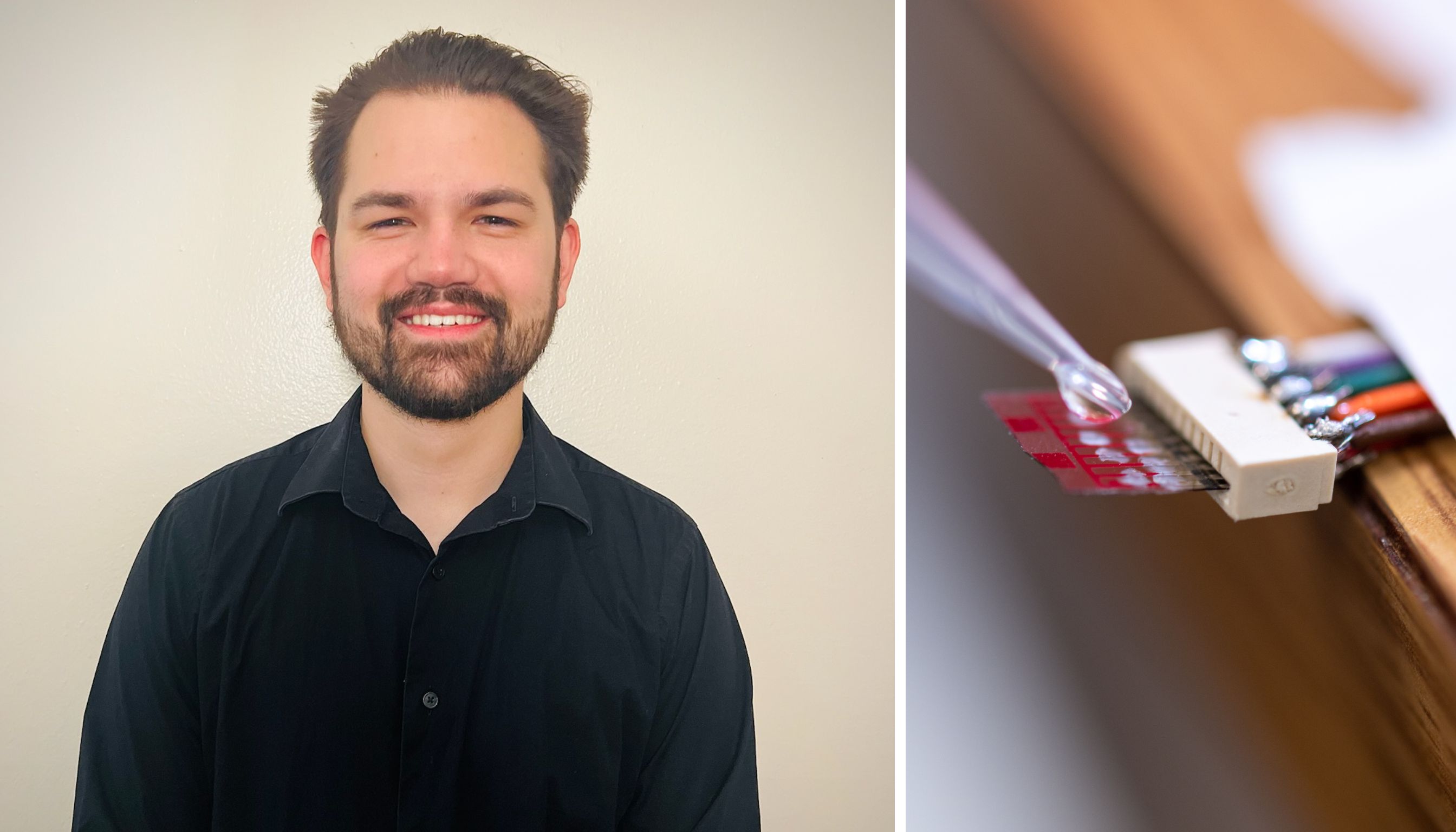Dayton Engineer

Recent Master’s Graduate Continues Research At UD as Research Engineer
Ben Robertson doesn’t work for an usual employer of UD graduates — but still certainly a rewarding one. After graduating with his master’s degree in chemical engineering from the University of Dayton in 2023, he accepted a position as a research engineer with none other than the University of Dayton. He was eager to continue the research work he started in his master’s program.
“It was an opportunity to continue pursuing my goal of helping society in a very positive and real way,” Robertson said.
Robertson, originally from Malvern, Ohio, started his bachelor’s degree in chemistry at Walsh University before coming to UD to finish his undergraduate and graduate degrees through a 3+2 program between UD and Walsh. The Catholic traditions and values of both Walsh and UD made the choice easy for Robertson.
“I always excelled at mathematics and science based courses throughout my years of school, and then when I became aware of the 3+2 program to acquire a bachelor’s and master's degree in only 5 years, it seemed like the right choice to me,” Robertson said.
As a master’s student and now as a full-time researcher, Robertson works in a biosafety lab on campus — the only one with specific requirements for biological molecules in his work. His master’s work utilized electronic sensors used for rapid detection of some of the world’s most common and contagious pathogens including SARS COVID-19, Flu A/B, RSV and more.
“The original project I was working on aimed to provide a replacement for current testing methods, in order to provide more accurate answers, quicker and in a more accessible manner,” Robertson said. “The research was spurred into motion as a result of the COVID-19 pandemic, where it was shown on a global scale how severely society needs a better format for disease detection.”
“The tests that we proposed to be possible as a result of our research would allow results in under 5 minutes, greater sensitivity than a PCR test, as inexpensive as at-home tests and potentially easier to use, as well as being highly selective resulting in high accuracy.”
Having found that he enjoyed research, his master’s work morphed into his current project, which utilizes the same electronic sensors to create wearable sensors for work around noxious gasses. Their goal is to create small, long-lasting sensors that could be worn or integrated into equipment to help protect workers involved with harmful gasses.
“Ever since growing up, it has always been my goal to provide help to people,” Robertson said. “I like knowing that I am working towards bettering society and improving its knowledge of an area of science.”
For now, he’d like to continue working in the research field but hoping to one day fuel his creative mind through other research topics that aim to create solutions to help people.
“I find there to be so much pain in the world, that anything I can do to lessen that seems like the best I could hope for for my career,” Robertson said.
